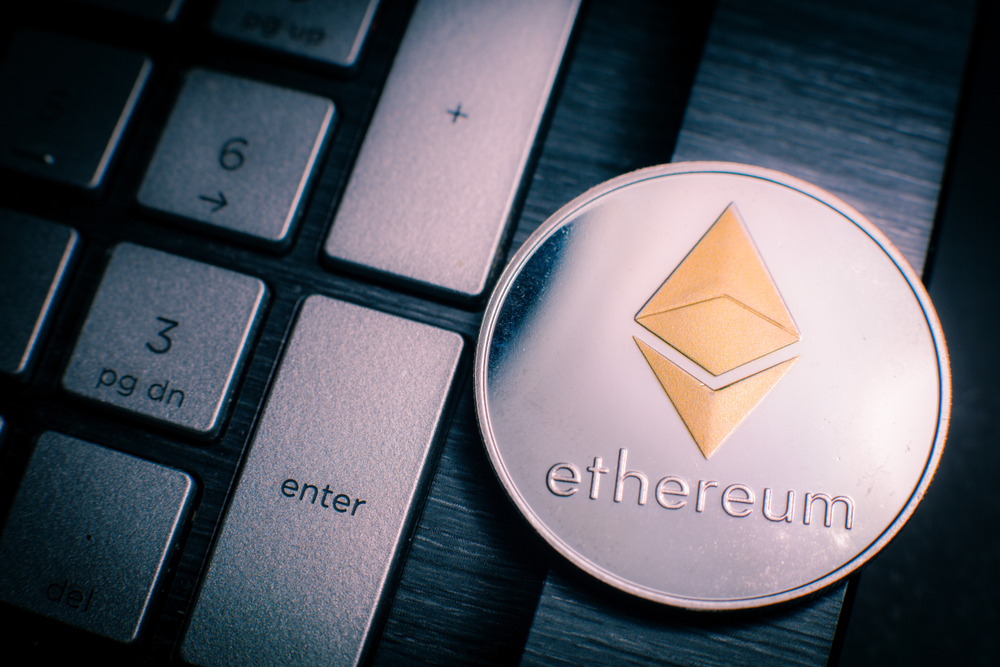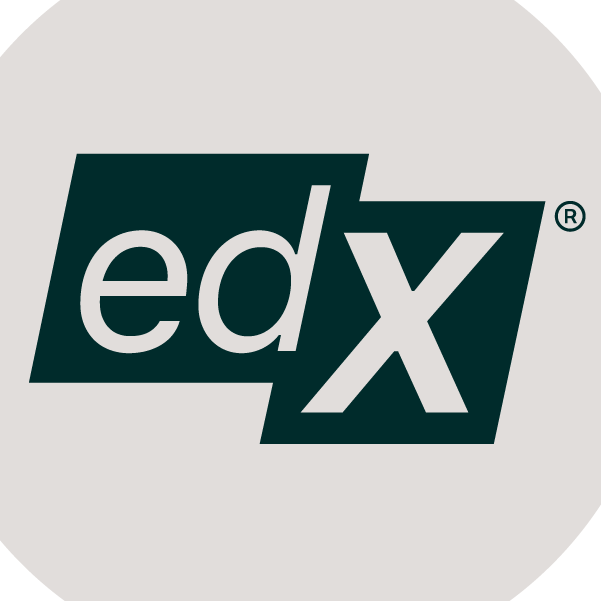- Which Blockchain Course Is Right for Me?
- Top 10 Best Blockchain Courses 2024
- 1. Blockchain A-Z: Learn How To Build Your First Blockchain
- 2. Blockchain and Bitcoin Fundamentals
- 3. Professional Certificate in Blockchain Fundamentals
- 4. Blockchain Basics
- 5. Blockchain Specialization
- 6. Ethereum and Solidity: The Complete Developer’s Guide
- 7. Smart Contract Development: CryptoDoggies
- 8. Blockchain and FinTech: Basics, Applications, and Limitations
- 9. Blockchain Revolution in Financial Services
- 10. Blockchain Technologies and Applications for Business
- FAQ
- Extra Credit
- Final Thoughts
The meteoric rise of cryptocurrency and its flagship, Bitcoin, has everyone frothing at the mouths about the possibilities inherent in the underlying technology behind it. Blockchain technology, if current markets and analysts are to be believed, is going to rule the world. In every sector, from logistics to finance to voting, blockchain tech is being cobbled together to take the principles of decentralized, trust-free transactions and distributed ledgers and apply them to integral aspects of society.
And you want in on the party. Whether it’s to beef up your own development skills using blockchain or to learn more about this evolving and complex new technology to sharpen your investment practices, a great blockchain course can be worth its weight in (digital) gold.
Blockchain courses offer a range of options based on your own starting point and learning outcomes. We’ll go over what to expect from various courses, what might suit you, and then show you a list of the top ten online blockchain courses.
Which Blockchain Course Is Right for Me?
It depends on your goals.
Knowledge of blockchain tech is a definite professional advantage in the current climate. Many companies are waking up to the opportunities provided by Bbockchain, and the demand is high.
We’ve grouped the courses on our list into these four types.
Apprentice
If you want a taste of the new technological revolution and to get an idea of what Mark Cuban and Elon Musk are blathering on about, there are plenty of great courses available to give you a taste of the basics. We’ll indicate which ones require no prerequisite knowledge right in the review. Some have a small coding element, but others are totally beginner-friendly.
Developer
You may have some coding skills in your locker already – either at a hobby or a professional level, and want to turn your hand to blockchain. Perhaps you’ve got an idea for a smart contract you want to launch or just are looking to have some fun. If so, there are great courses for the hobby coder or the serious programmer on our list to develop and apply their skills.
Enterprise
You may be looking for opportunities to either use or invest in blockchain and are curious about the applications it could have to your business. Several courses on our list will be suitable for you.
FinTech and DeFi
There is a financial revolution going on. M3 might not be the final evolution of money, after all. Or is it M4? Who’s counting? – Except, of course, the myriad and baroque systems doing just that at accelerated rates, and which are the cause of this entire technological spurt. If you want insight on the cryptographic tunnels that are reimagining the terrain of our financial system – these courses might be right for you.
In all four types, you’ll find some courses are more practical-based while others are more theory-based. You might be a hands-on learner or want to gain specific skills, or you may just want the deep knowledge underpinning the systems. We’ll give an indication of the expected ratio between theory and practice in the reviews.
So, let’s mine the first block and get this ledger of the best blockchain courses distributed to the network.
Top 10 Best Blockchain Courses 2024
1. Blockchain A-Z: Learn How To Build Your First Blockchain
- 14.5 Hours Video $149
- Course Highlights
- Level: Beginner, Developer
- Topics: Overview, Python
- Excellent practical introduction to blockchain
Why we like it
The practical element running alongside the theory and the fact that a basic knowledge of Python will allow you to have a working blockchain by the end of the course.
As the course title suggests, this is meant to be a course that takes you from the first imaginations of what a Blockchain is to the completion of your own finished blockchain (or a least a pretty clean idea of how to do it going forward).
Its breadth, and the fact it has a practical element, make it great for those of you who want more than just a theory bomb dumped into your brain, or who are looking for a mentor or guide to take you through some steps you may already have tried yourself.
If you have a basic knowledge of Python, you can complete the practical aspect of the course. As well as covering the theory, the course pushes onto the notion of smart contracts and how they can be utilized using blockchain tech, and you will fiddle with basic smart contract implementation.
Due to its practical learning nature, this course is not ideal for those who want to sit back and be educated. There is certainly a lot of that with the 14.5 hours of on-demand video, but the videos are best used to follow along with by testing your own code using the techniques provided.
It’s great for hobby coders, can-do general learners, or those with a specific project in mind but need some tools and organization to start. It should really only be skipped if you already know the basics—then, something like Ethereum and Solidity: The Complete Developer's Guide might be a better fit.
Pros
- Finish the course with a completed blockchain
- Great practical element
- Covers the basics well and in detail
Cons
- Need to know Python to get the most from the course
- Not ideal for enterprise-focused learners
2. Blockchain and Bitcoin Fundamentals
- 3 Hours Video $94.99
- Course Highlights
- Level: Beginner, Apprentice
- Topics: Bitcoin
- An introduction to everyone’s favorite blockchain product, Bitcoin
Why we like it
An extremely beginner friendly course that focuses on introducing Bitcoin and Blockchain in an easy, accessible way.
Bitcoin – a dotcom-esque bubble? A new global currency? A death knell for governments and the financial institutions they control us with?
Or perhaps it's just a very accurate and secure way of recording a ledger, and everyone needs to calm the heck down. Whatever it is, you've almost certainly heard of it if you're on this page, and maybe also heard about the basement-dwelling never-do-well you used to know from school who is currently picking out his new Lamborghini.
Bitcoin's value as the first expression of a blockchain technology gone global means it is a flag carrier for the cryptocurrency market as a whole. As the genesis coin, the way it utilized blockchain tech set the standard and the parameters for what's to come.
This course looks intimately at what Bitcoin is, what it does, and how it operates, while simultaneously giving a general grounding on the blockchain tech that underpins it and how it can be applied in other ways.
A great starter course, but it's a little short if you're serious about blockchain, and is best considered a primer. You’ll want to supplement it with something more in-depth like Professional Certificate in Blockchain Fundamentals after.
Pros
- Basic and easy explanations for beginners
- Explores the technology behind Bitcoin
- Short and sweet
Cons
- Very short – no depth
- No development knowledge acquired
3. Professional Certificate in Blockchain Fundamentals
- 3 months (3-5 hours per week) $149
- Course Highlights
- Level: Beginner, Enterprise
- Topics: Bitcoin, Professional Blockchain
- An in-depth professional approach to learning about Blockchain
Why we like it
Although catering to beginners, this UC Berkeley-backed course has a more professional focus and discusses beginner blockchain with a focus on enterprise applications.
If you're looking for an introduction to Blockchain but are focusing on learning for professional development, this course is suitable for you. It tackles the underlying mechanisms that surround the technology and its future applications from the standpoint of how they will be utilized in business applications.
Covering Bitcoin, Ethereum, dApps (applications on specific cryptocurrencies networks – short for 'decentralized apps') and alternatives to Bitcoin's energy-consuming proof-of-work mechanism, the course is a sober and professional look at the crypto-fuelled future – and, importantly, the obstacles that are going to arise as they are implemented.
As it's offered by the Computer Science department by UC Berkeley, there is some heft to the certificate that you are awarded, and it's a great first professional step for a career or specialization in blockchain.
Pros
- Good focus on business applications
- Covers the main currencies
- Accredited by UC Berkeley
Cons
- Quite sober in its delivery
- Learning outcomes are broad for beginner course
4. Blockchain Basics
- 19 Hours Enrol for Free (with Coursera subscription)
- Course Highlights
- Level: Intermediate, Apprentice
- Topics: Practical overview
- Teaches you how to understand and use blockchain for practical purposes
Why we like it
A beginner-friendly course that goes a bit further than most, and is more hands-on with setting up mines and wallets through its practical modules.
This course, although covering the "basics", is extremely broad in the subjects it covers. It covers mining, setting up nodes on the Ethereum network, wallets, hashes and all the other nitty computational gritty – and basic interaction and task workflows with crypto software – that you might need to know about and operate if you're getting into crypto.
If you're unsure what the terms above are, this course might not be for you—start with something like this basic primer. Yet if you're open about the prospect of setting up your own mine, or are looking for ways to interact with the Ethereum network, this course is fantastic.
Better yet, it doesn't skimp on the "basics" either. If you are a complete beginner and all the terms above make no sense, they will by the end of this course – it'll just be a lot of work.
This is because the instruction is broadly practical and expects learners to want to achieve the practical goals laid out within the documentation and the videos. So coffee cup and chill learners might find more suitable courses elsewhere on this list.
Pros
- A beginner course with a ton of depth
- Lots of specific, practical modules
- Good focus on Ethereum
Cons
- Need practical involvement
- Very broad for beginner course – may go further than you want to
5. Blockchain Specialization
- 4 months (4 hours per week) Enrol for Free (with Coursera subscription)
- Course Highlights
- Level: Intermediate, Developer
- Topics: Practical overview
- Start to finish guide to developing with blockchain
Why we like it
It’s a great beginner blockchain course that is focused on skilling up developers and those who know how to code.
If you have some developmental nous, are proficient at a modern high-level programming language, and are seeking to expand and utilize those skills using blockchain technology, this course can’t be beat.
The course focuses on developing decentralized applications on the Ethereum network and is ideal for those seeking to learn more about smart contracts and the underlying theory behind the tech. It's method-based and teaches you how to actually execute the theory it teaches, including peer-to-peer contracts and using Solidity to write smart contracts – but it's not as straightforward or A to Z as other courses on this list. You may know nothing about blockchain, but you'd be expected to know your way and then some around a computer and mathematics.
If you're a developer and want to get into blockchain – this is a great course to wet your whistle and get the basic pragmatics down alongside a whole chunk of theory.
Pros
- One of the best courses for developers who are out the loop
- Launch an app on Ethereum by the end
- Program your own smart contract
Cons
- Not as straightforward or beginner-friendly
- Need solid coding and computer knowledge
6. Ethereum and Solidity: The Complete Developer’s Guide
- 24 hours on-demand video, 15 articles $94.99
- Course Highlights
- Level: Intermediate, Developer
- Topics: Ethereum, Solidity
- A great way to get into programming for Ethereum
Why we like it
The focus on Ethereum and Solidity make this an excellent course for coders looking to develop on that ecosystem.
Ethereum is the leading "alt-coin" on the market. Although Eth maxis would argue that it’s big enough that it’s not an alt-coin at all. The ancient, clanking giant that first enamored the crypto-public with the term smart contracts, Ethereum is – at a basic theoretical level – an attempt to create a decentralized supercomputer that is capable of executing a whole ecosystem of subprojects under its monolithic umbrella.
To call Ethereum a "currency" alone is to wildly misunderstand its possibilities and use-cases, and It's also currently the second-largest cryptocurrency by market cap - a position no one expects to change anytime soon.
You probably know all this if you're looking to develop on Ethereum. You might also know you need to learn Solidity, a language that is otherwise not that common. One of Ethereum's barriers to entry is that without knowing it, you can't program on the chain. Although "oracles" are in development to help translate various code languages to work on Ethereum, most people foresee any major developer on the network should have a more than capable grasp of it.
If you're looking to learn to take advantage of the opportunities within the ecosystem, this course helps with just that. If you want to learn Solidity and get into Ethereum, go for this one.
Pros
- Focus on developing Solidity skills needed for Ethereum
- Explores the Ethereum ecosystem in-depth
- Practical and achievable learning outcomes
Cons
- Specific for those who can code and want to learn Solidity – or look elsewhere
7. Smart Contract Development: CryptoDoggies
- 3 hours 32 minutes (38 lessons) Trial Free (with Skillshare subscription)
- Course Highlights
- Level: Beginner, Developer
- Topics: Smart contracts, Ethereum
- Much more fun than listening to a lecture
Why we like it
A fun, playful course that has solid educational fundamentals and a learn-by-doing approach.
If you're a hobby coder who's looking for a light-hearted tone as the methodology behind creating smart contracts is explained, this course is a fantastic little primer that allows you to create a token game on an Ethereum smart contract. By doing this, you learn the basics of Solidity and how to use it to create a dApp, and it allows you to practice constructing basic tokenomics for your coin and a foundational understanding of what an ERC token is and how it operates.
The course is suitable if you're using MacOS, Windows or Linux to code, and there is a developmental setup explained for each of these operating systems. The teacher, Nathan Glover, is upbeat, communicative and gives his explanations a playful air that keeps the rather arcane topic breezy and enjoyable. The dog tokens evoke the most famous meme currency – DOGE coin – and there is a sense of playfulness and wonder throughout as you wander through the possibilities of the Ethereum Imaginarium.
Pros
- Fun, accessible lessons
- Working smart contract by the end of the course
- Carefully graded for newbies
Cons
- Practical aspect essential for getting anything out the course
- A bit short
8. Blockchain and FinTech: Basics, Applications, and Limitations
- 6 weeks (3-4 hours per week) Free, Certificate $165
- Course Highlights
- Level: Beginner, Fintech
- Topics: Finance
- Great for people with a a basic grasp looking to expand their knowledge
Why we like it
An excellent and consistent focus on the financial opportunities within the blockchain sector, but which starts from the beginning.
Blockchain tech, as a result of Bitcoin and the natural properties of the tech, has inextricably become linked to finance. It makes sense, as blockchain tech is really just a secure, decentralized ledger that performs many functions of the banking system at an innate level.
It goes further though. Due to the possibilities of creating liquidity tools and the hot emerging market of decentralized finance, or DeFi, every financial institution in the world is starting to pay attention to, or is already setting up systems to integrate with, the world of cryptocurrency.
If you're in finance and want to understand more about Fintech – the combination of finance and technology, then this is a neat little course that also covers Blockchain as a whole. So if you're not too sure on the general technology yet, but want a starter explanation that is focused on the context of financial applications, then this course is ideal – if slightly less meaty than other fintech courses available.
Pros
- Great depth and specific knowledge for the price
- Targeted at finance professionals with little working blockchain knowledge
- Good introduction to DeFi
Cons
- Not as in depth as other courses
- No practical module
9. Blockchain Revolution in Financial Services
- 5 months (3-4 hours per week) Enrol for Free (with Coursera subscription)
- Course Highlights
- Level: Advanced, Fintech
- Topics: Finance
- An in-depth look at the finance side of Blockchain
Why we like it
A great intermediate or advanced course for finance professionals or investors looking for a deep dive into what is offered by Blockchain.
This is a more meaty and applied variant of a Fintech-focused blockchain course. You may have a fairly solid grasp of the basics of cryptocurrency but are looking to expand your knowledge in a more enterprise-focused way and learn how to create strategies and systems to maximize it.
It has an excellent module on challenges facing the industry that is dispassionate and useful and helps learners remain savvy about the roadblocks that are coming, both for developers and the wider market itself.
There is applied learning as part of this course, as you produce a Strategic Action Plan where you relate knowledge of blockchain as gleaned from the course to the financial services industry and evaluate a promising use-case and how you could apply it. As you develop it across the weeks of the course, new methods and understanding are introduced so you can refine it. This continuous and learn-by-research approach means you need to be quite focused and driven to get the most out of this course, but it's well worth it if you do.
Pros
- A dense, intense course for those serious about financial aspects of blockchain
- Practical Strategic Action Plan keeps learning interactive
Cons
- Not for beginners at all
- Demanding
10. Blockchain Technologies and Applications for Business
- 2 months, 4-6 hours per week $2,600
- Course Highlights
- Level: Intermediate, Enterprise
- Topics: Business applications of blockchain
- One of the only accredited blockchain courses available
Why we like it
An accredited course from UC Berkeley that counts towards a business certificate.
This course is most suitable for business owners or those seeking to apply blockchain solutions at a significant scale as part of a larger financial institution or corporation. Professionals from walks of life such as insurance, real estate, and IT can also find great opportunities for professional growth from the teaching this course provides.
There are 8 taught modules covering privacy considerations, regulatory demands, and obstacles enterprises face when utilizing blockchain tech. There are also six technical workshops, where learners will make their own cryptocurrencies, blockchains, and wallets and deep dive into various aspects of the technology.
A significantly more serious and expensive course than others on our list, the program counts towards a certificate of business excellence, and if you're a committed learner, there is no reason this could not be woven into a larger program of study across the financial sector as a whole.
Yes, the information in this course can mostly be learned for free or at a far lower cost, but the certification offered and quality of teaching on offer make this worth the cost for specific learners. Those who aren’t ready to dive deep should take a cheaper, shorter introductory course first, though.
Pros
- Fully-accredited
- Great teachers
- Wide-ranging modules
Cons
- Fearsomely expensive for information obtainable in other ways
FAQ

It’s actually very easy, surprisingly. With each Bitcoin valued at $54,000 (at the time of writing), you might think that it must have been a spectacular feat of computational engineering to create. The truth is that it is the principles that are revolutionary, not so much the grunt-coding behind it. By the time you have finished many courses on our list, you’ll have created your own blockchain.
Most qualifications will boost your job prospects – even unaccredited ones. Blockchain is certainly one of the current hot trends of the employment market, but you’ll find the barrier to entry is lower than you think if you have coding knowledge, and the knowledge alone won’t be enough.
Therefore, arming yourself with the fundamentals of blockchain through a course is important, but to cement a career, you will need to get into the weeds of creating and developing your own blockchains and encounter the same obstacles that developers across the world – even on the biggest platforms like Ethereum – are experiencing.
To get the maximum value out of most of these courses – yes. However, If you are somewhat computer-savvy but can’t code, then you can get some value out of these courses with a can-do attitude and willingness to grind through the technical aspects. If you do go for a course with a practical element, maybe look at a basic python course too to supplement your learning.
Extra Credit
The ten courses on our list all offer expertise in blockchain technology, whether at the enterprise or the hobby level. Here we’ll offer some insight into how to zero in on the one that’s right for you.
Your Computer Knowledge
Speaking of zeroes and ones, your foundational computer knowledge is doubtless the most important thing to keep in mind when choosing a course. If your knowledge is zero, it may be worth getting stuck into a computing course before taking any of the courses on this list.
That said, the short blockchain basics course can be understood by anyone of any level, as it’s more focused on general concepts.
The key differential on what course you take is your proficiency or lack thereof in a programming language. Python is commonly used to create Blockchains, but it’s not the only one. Naturally, if you’re an expert in C++ then you shouldn’t let the requirement for “basic python” put you off, as it’s probably child’s play with even a few hours learning—but it’s good to keep in mind.
Ethereum requires Solidity, and a core developmental step for developers to get into blockchain is at least to familiarize themselves with the rudiments of that language – which this Ethereum course does.
Yet even if you’re not a programmer, the intermediate and advanced courses on this list will be exponentially more useful the better your grounding is.
What to Expect From an Online Course
One thing to touch upon is the nature of online learning. Since 2020, digital education has ballooned as an industry as in-person courses have become impractical. Most analysts predict online education is here to stay. Most people enjoy working at their own pace and not hauling themselves to some arranged place only to find the teacher is sick and the know-nothing substitute is handing out some papers they could’ve emailed you.
But it’s not without drawbacks. Slouching in your office chair browsing Reddit while half-watching a video on specifics of hashrates and proof-of-stake solutions is not likely to imbue you with professional-grade blockchain knowledge. Yet the revisitable nature of the content – provided as video on-demand or documents – means it certainly doesn’t matter if you’re having an off day. Just know the limitations of theory if you’re not engaged and seeking to apply it.
Certification
A certificate is usually given out for a paid course. Several of these courses are free or available at a discount if you’re subscribed to one of the main course learning platforms. Sometimes, it is the certificate you have to pay for if you want some evidence of your knowledge, either for a job application or CV polishing. If you’re just learning for yourself, you may not need certification at all.
Sometimes these certificates have no name-cachet when it comes to professional qualifications, but it doesn’t mean they lack value, and they can be great to boost your CV and prove the interest and knowledge you have in Blockchain to a potential employer. Other courses, like this one offered by Berkeley, are accredited and count towards business qualifications.
Length and Cost
For a serious enterprise-based course, like the one offered by UC Berkeley, a slot will cost you $2,600 (about 1.1 Ethereum at the time of writing). Several of the courses are free pre-certificate, or are discounted substantially if you’re subscribed to the platform or catch one of many periodic deals.
For simplicity’s sake, we’ve listed the highest possible price you can expect to pay for the course – but you’ll find it’s often substantially lower, and it’s certainly wise to try and time it.
Choosing Between a Practical or Theory-Based Education

Most courses on our list have a practical element for this reason. Whether it’s making your own blockchain, currency, dApp, or smart contract, the mechanics of doing are a great way to keep you engaged and to cement what you pick you.
It does mean, however, you should check carefully if you’re committed to doing the practical elements of the course if it contains them, as the instructors often used these examples to illustrate core theory. If you’re not looking for that, then definitely take one of the pure instructional classes that simulate university lectures at home.
Is One Online Course Enough?
To start with, of course. But to get a complete knowledge, no. The truth of blockchain technology is that it’s an evolving industry and new applications are being developed even as you read this. No course on the list covers everything – no course could. That’s why the courses arrayed here generally start at the start -because the middle is still being worked out.
However, the basics of cryptography, the possibilities of decentralized ledgers, the underlying mathematics, and technology that create these opportunities, the terms “miner”, “hashrate”, “dApps” – all these and many more will, like the ledger itself, be immutable, and still be essential knowledge when blockchain systems are running every shipping freight transaction running through the Suez Canal.
All the courses on the list provide strong theoretical frameworks to take your knowledge further in a more focused or specialized way as you develop. Some just take you further along the journey.
Are Blockchain and Cryptocurrency the Same Thing?
No. Blockchain is the underlying technology – the cryptographic process by which you create a decentralized (no central authority governing the protocol) ledger that is trustless and secure. You can also get centralized ledgers, where although the structure of the ledger is established and managed using blockchain tech, there are nevertheless backdoors where the governance authority – usually the issuer of the token – can “intervene” in its ongoing development,
Cryptocurrency is a catch-all term that is applied to the “stock market” of these tokens. As developers create new dApps, new tokens and new blockchains – much like the ones you will create in these courses – they are often issued into the market where people can trade them.
Are All Blockchains Cryptocurrencies?
An important note: most of these tokens aren’t “currencies” at all, but rather serve as governance tokens or “gas” for the network or blockchain they are operating on, the goals of which are multifarious and diverse. Bitcoin is a currency – or is at least intended to be – but many others are not.
If all of that sounds dense and complex – it’s because it is. The courses on the list do an excellent job – far better than this humble reviewer – of unfolding these principles so, even if you truly are just looking to trade in cryptocurrency rather than work in the sector, the courses listed will help you acquire the fundamentals to help you make better choices when you do.
If you’re looking for a good introductory explanation, this video by 3Blue1Brown does sterling work explaining both it and the mathematical principles underpinning it.
But I Just Want to Trade DOGE and Get Rich!
To gain spectacular amounts or lose the house on the crypto market – or any market – no one needs any education. Winners and losers are spat out every day at every income level. Of course, many millions of hours are already spent at university digging into the fundamentals of stock market trading in the hope that it raises the probability god chews you out on the “winners” side. The same is also true – or starting to be true – for the cryptocurrency market.
The courses on our list are not so much geared towards that, they’re more about learning blockchain fundamentals so you can be a developer, hobbyist or professional, But if you’re looking to learn leverage, margin, and maintain a constant 100 bpm heartrate as you participate in the most volatile sector on earth – but want a bit of know-how before you start – then this Cryptocurrency investment fundamentals course can help you steel yourself for the greatest casino on earth.
Final Thoughts
Blockchain is going to be a fundamental part of the future of business. Whether that results in 50 zillion dollar Bitcoin is quite another story. The fact is that aside from the news-making currency, the technology has applications that will revolutionize medicine, art, banking, and countless industries besides. Becoming knowledgeable about blockchain tech and its applications is a surefire way to ensure that you don’t miss the boat on humanity’s latest technological revolution.
So, enjoy a course, create your own blockchain, and learn how to apply the theory to every link in the business ecosystem to power up your career and be at the cutting edge of technology In your chosen field.
Alternatively, create a currency called CATE, slap a picture of your kitten on it, and release it into the wild. Perhaps the crypto-addled hordes will soon bay for every crumb of your digital largesse and crash the financial markets as they wage war for the merest slice of the pie. With blockchain, anything is possible.






